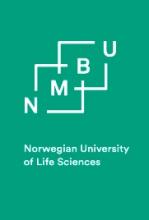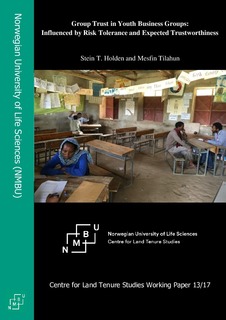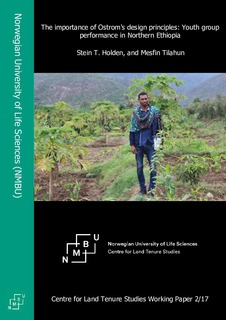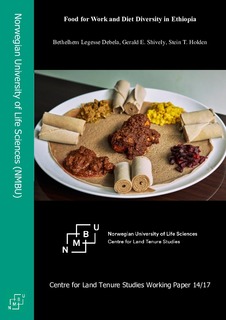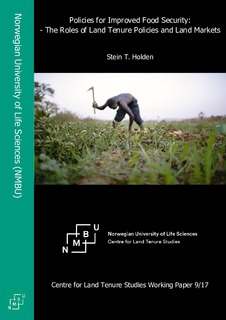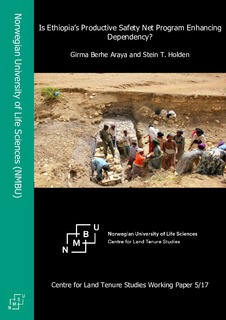Location
NMBU's mission is to contribute to the well-being of the planet. Our interdisciplinary research generates innovations in food, health, environmental protection, climate and sustainable use of natural resources.
About NMBU
NMBU's research is enabling people all over the world to tackle the big, global challenges regarding the environment, sustainable development, how to improve human and animal health, renewable energy sources, food production, and land- and resource management.
Members:
Resources
Displaying 21 - 25 of 98Group trust in youth business groups : influenced by risk tolerance and expected trustworthiness
We analyzed lab-in-the-field trust and risk experiment with 1125 youth in 119 youth groups established as primary cooperatives to develop a joint business. The experiments were implemented using classrooms in local schools as field labs. The standard trust game was used with all youth participants playing the roles as trustors as well as trustees. As trustors, they knew that the trustee would be an anonymous member of their own youth group.
The importance of Ostrom's design principles : youth group performance in Northern Ethiopia
Youth unemployment and migration are growing challenges that need more political attention in many countries, particularly countries with rapid population growth and economic transformation. Proactively mobilizing the youth as a resource in the creation of sustainable livelihoods can potentially be a win-win-win solution that Ethiopia is currently attempting. The new youth employment strategy includes allocation of rehabilitated communal lands to youth groups.
Food for work and diet diversity in Ethiopia
We use four waves of panel data from Northern Ethiopia to investigate the link between Food for Work (FFW) participation and the diversity of food consumption and production. Food-based transfer programs have become a standard tool for addressing the problem of chronic food insecurity in developing countries. Such programs have the potential to expand diet diversity if food items provided under FFW are not part of the beneficiaries’ staple diet. By raising effective incomes, cash payments also have the potential to “crowd in” purchases of nutritionally important foods.
Policies for improved food security : the roles of land tenure policies and land markets
This chapter is written for the European Commission for a book to be published by Springer on The Role of Smallholder Farms in Food and Nutrition Security. The author takes full responsibility for the content.
Is Ethiopia’s productive safety net program enhancing dependency?
Although development intervention programs can have far-reaching impacts beyond their stated objective, there have been few careful studies of unintended outcomes of such programs. This study assesses the impact of Ethiopia’s Productive Safety Net Program (PSNP) on household size and dependency ratio using the difference in differences method based on a panel data of four rounds over 12 years. Results show that member households in the PSNP have built a larger household size and dependency ratio than non-member households.

